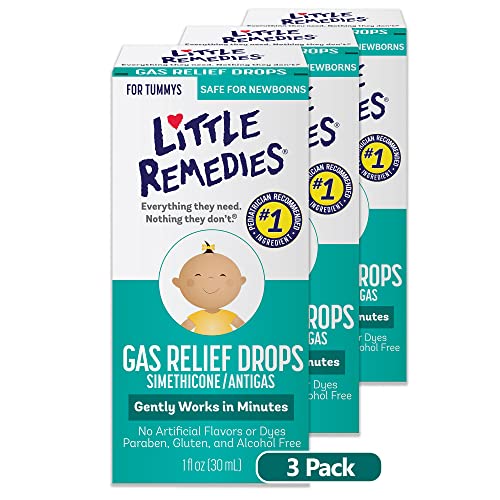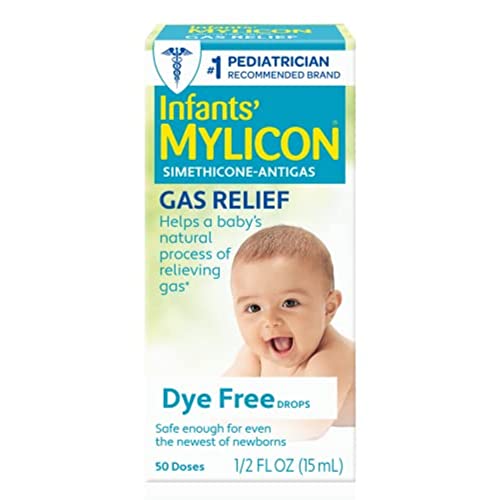Young or old, gas is a normal part of everyday life as a human being. It starts from just a couple of weeks old and continues from there.
As a mother, it can be hard to watch our young newborns suffering from gas. But there are ways to deal with it to help keep your baby more comfortable and avoid gas becoming too much of an issue.
As an Amazon Associate, I earn from qualifying purchases. The links below may be affiliate links. Please read my disclosure policy for more information.
What causes newborn gas?
Let’s start from the beginning. When our babies are suffering from gas, it has to be caused by something, right?
So, who are the gassy culprits?
Swallowing air
When breastfeeding or bottle feeding, it is possible for your child to accidentally swallow air, causing gas bubbles inside them. This often happens if your baby is struggling to latch or is latching incorrectly.
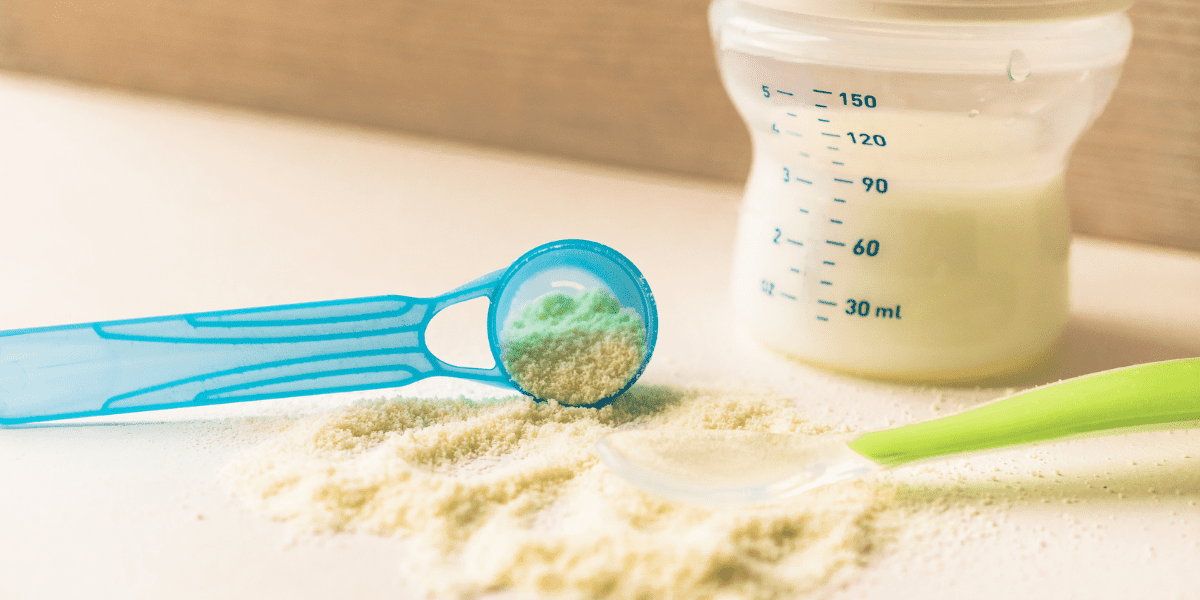
Not mixing formula properly
If you are feeding your baby formula, it is essential to make sure you mix it thoroughly. Mixing it improperly can lead to pockets of air filling the bottle, which your newborn may swallow, causing them to get gas.
Excessive crying
Remember the last big crying session you had? You were probably gulping deep breaths of air between tears, winding yourself.
Well, the same goes for your baby. In the early stages of development, babies use crying as a way to communicate their needs to their parents.
Unfortunately, with all the crying, your baby may be giving themselves gas. Poor little thing!
Digestive problems
Your baby has an immature digestive tract that is only just starting to learn how to digest food. This makes your baby more vulnerable to building up gas in their body.
Constipation
Similar to having digestive problems, if your young child is having difficulties going to the bathroom, the built-up pressure in the body may lead to excessive gas build-up.
Virus
As with most people, feeling poorly can lead to a lot of trapped wind. If your baby is suffering from a virus, they may experience discomfort from gas.
You can tell if a virus causes their gas as they will also usually have a fever

Food sensitivity
While it isn’t common, some babies may have a slight intolerance to lactose which could cause gas. Also, if you are breastfeeding, it is possible there is food in your diet that your baby is sensitive to that is causing your newborn to be extra gassy after feeds.
The main culprit foods in a mother’s diet tend to be soy, caffeine, cabbage, onions, and lactose.
How can I tell if my baby has gas?
Now we know what causes newborn gas, what are the warning signs that your baby may be in discomfort from it?
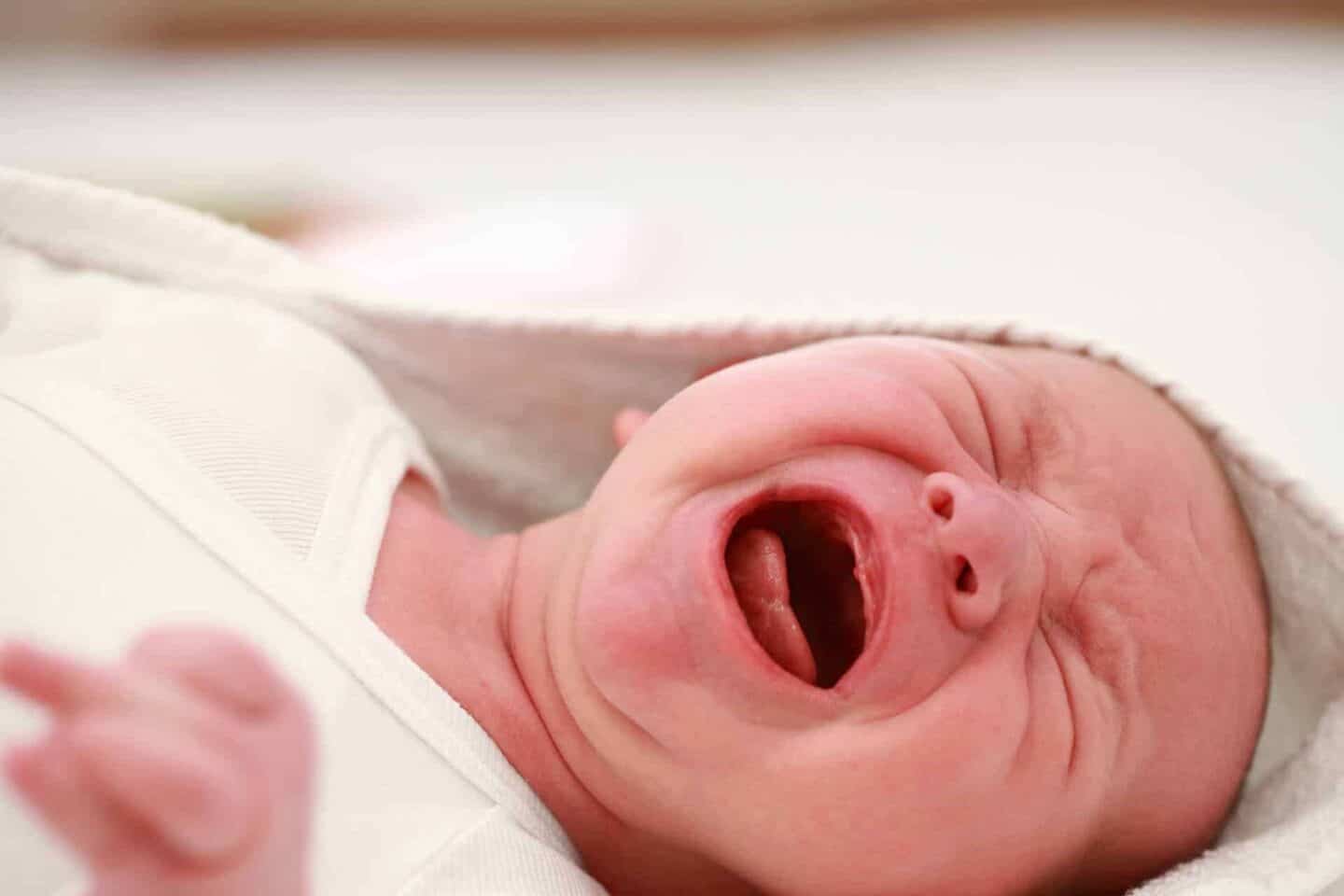
If your baby is suffering from gas, they may exhibit some of the following symptoms:
- Restlessness
- Unable to sleep
- Crying for hours
- Arching their back
- Swollen stomach
- Lifting their legs
- Passing gas
In extreme or prolonged cases, your baby may also experience the following:
- Your baby isn’t eating well
- Your baby seems unhappy most of the time
Natural ways to relieve newborn gas
Great! Now we know the basics of our newborn’s gas problems, let’s look at some simple home remedies to help relieve them.
Move your baby’s legs in circles
With your baby lying on their back, gently move their legs in a circular motion, as if pretending they are riding a bike.
This will help to move the gas through the body to help it exit.
Raise your baby’s head above their stomach
By placing your baby in this position, you help keep them comfortable while encouraging air to move through the body rather than building up to create gas bubbles.
Take your baby on a car ride
You may be aware of the extraordinary power a short car ride has to help your baby drift off to sleep.
But what you may not have realized is it can also help to release any trapped gas built up that your child is having difficulty releasing.
Swaddle your newborn baby

Swaddling imitates the experience of being in the womb. For babies suffering discomfort due to colic or trapped gas, this can provide them a sense of safety and comfort.
It also has the added bonus that it pushes slightly on the belly, encouraging wind to pass.
Cradle your child facing down
Instinctually as moms, we tend to cradle our babies facing upwards. Of course, there is nothing wrong with this at all.
But if your baby is suffering painful gas, it may help to cradle them facing downwards. This way, you put slight pressure in their belly, which will help the trapped air to move around and release.
Massage their belly
You may be noticing a theme by now. There are strong links between applying slight pressure to the belly and relieving gas symptoms.
Therefore, it should come as no surprise that a simple belly rub or massage is an easy yet effective method of combating newborn gas problems.
Supervised tummy time
Getting your baby to spend some time on their belly will help to push trapped gas through.
As tummy time often involves quite a bit of movement, this will also help to relieve any uncomfortable gas build-up your baby might be experiencing.
Make sure always to supervise your baby’s tummy time for safety.
Burp your baby
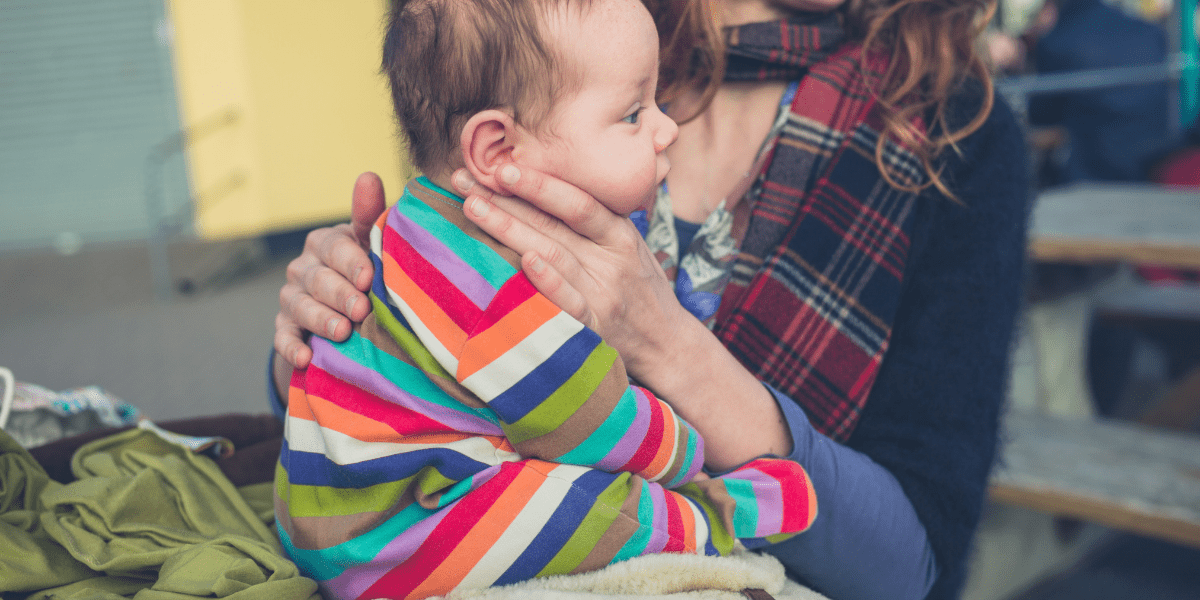
The classic solution is to make sure to burp your baby after feeding to help them digest properly and release any air bubbles they may have swallowed.
If your baby is prone to getting gas, particularly after feeding, it might be a good idea to burp them a bit more regularly than you usually would.
Distract them
We know that gas is a natural part of life. And in almost all cases, the trapped wind will eventually pass.
But, in the meantime, distracting your baby from the pain may be a great solution to help them cope with any discomfort they are experiencing until they are able to release it.
Use gas drops
If none of the remedies above help, you may want to consider using “gas drops” to help your baby’s body accelerate passing gas.
Made of simethicone, this medicine works by breaking down larger gas bubbles into smaller ones, making it easier to pass wind.
And don’t worry, the American Academy of Pediatrics has declared gas drops safe for newborns to use.
How to reduce/prevent newborn gas
So now we know how to relieve our poor little newborn’s distressful gas; you might be wondering if there is any way to prevent it from getting to that stage to begin with.
While you can never entirely prevent gas, there are some things you can do to reduce the likelihood of it occurring.

Change feeding position
Consider changing your feeding position so your baby is upright or semi-upright, as this will slow down the flow of the milk.
Improve latching
By helping your baby latch better, you will avoid your baby unnecessarily swallowing air when trying to feed.
Slow down feeding
If you are feeding your baby with a bottle, try and encourage your baby to drink slower.
Try using a different bottle
Sometimes the shape of the nipple on the bottle doesn’t work well for your baby. You may find they have more minor issues with latching and swallowing air by trying a different bottle.
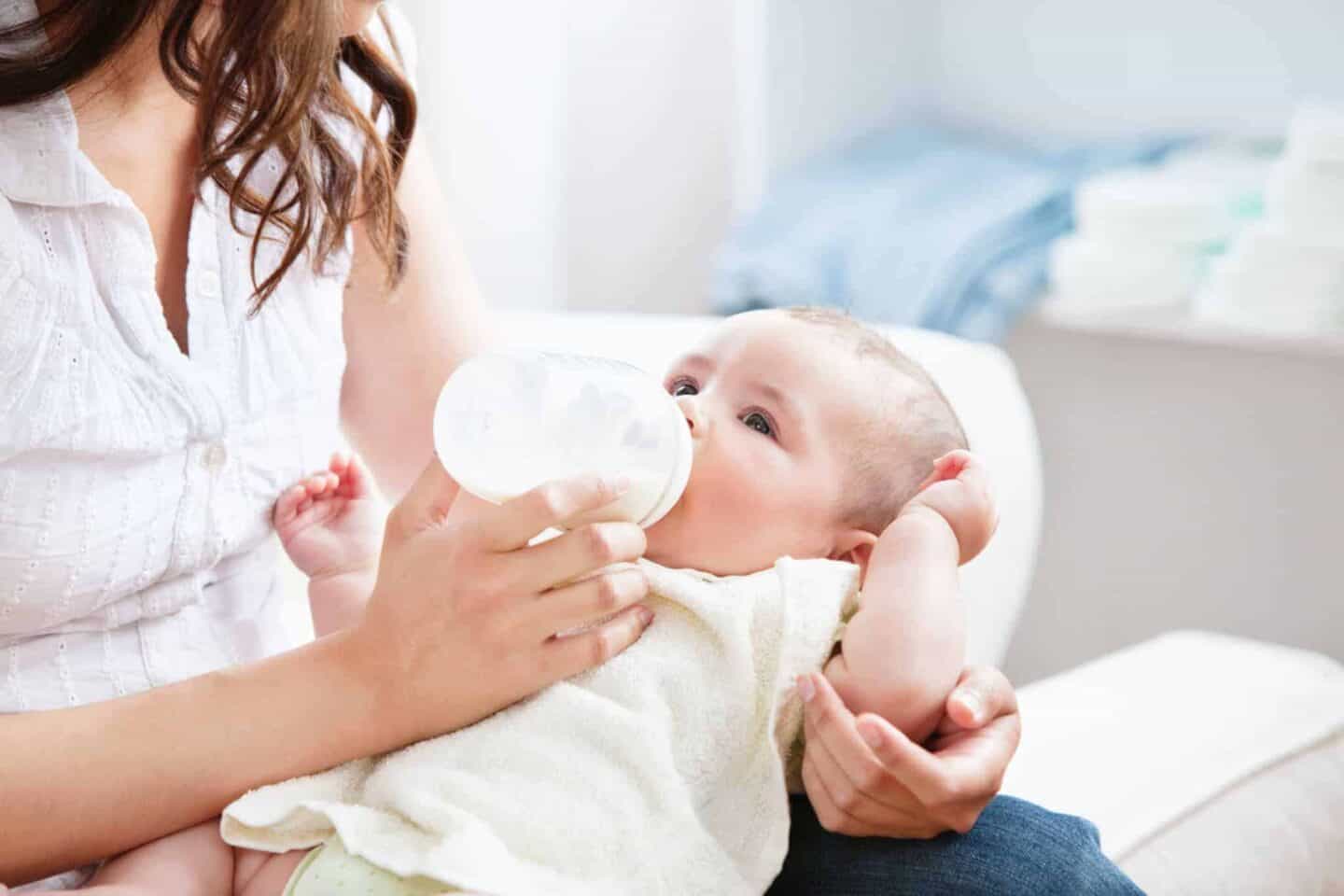
Learn hunger cues
By learning your baby’s hunger cues, you’ll be more prepared to start feeding quicker. This results in less crying time for your baby, which ultimately leads to less air swallowing and less gas build-up
Try new formulas
If you suspect your baby may have a food intolerance, try using a different formula to see if it helps reduce your baby’s gas symptoms after feeding.
Should I see a doctor?
While gas is usually nothing to worry about, you may want to consult a medical professional if you suspect any of the following:
- Your baby has a food sensitivity
- They are unhappy most of the time
- Your baby isn’t gaining weight
- You suspect it may be colic
- Your baby suffers from frequent constipation
Your doctor may order tests to rule out any untoward causes.
It might be helpful to keep a food log for yourself and your baby to see if anything you are eating, or the formula being used, could be contributing to gas problems.
Final thoughts
It can be distressing to see your newborn in pain from the trapped gas. Fortunately, using the techniques above, you will have the skills necessary to help your little one feel relief from their symptoms.
Don’t blame yourself if your baby is suffering from gas; it’s an entirely normal occurrence – after all, their digestive tracts are still immature, and they are just starting to learn how to eat correctly.
And the good news is, newborn gas typically only lasts until they are six months old. Phew!

